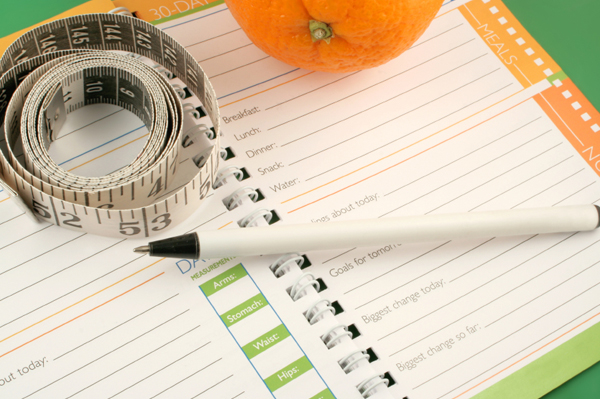 It is a good idea to keep a food diary during your experiments with food. Write down everything you eat at each meal, or between meals, and also mark in any symptoms which you experience, with the time of onset in relation to meals. It is often possible to spot a pattern which recurs time and time again but which is not evident when relying only on short-term memory.
It is a good idea to keep a food diary during your experiments with food. Write down everything you eat at each meal, or between meals, and also mark in any symptoms which you experience, with the time of onset in relation to meals. It is often possible to spot a pattern which recurs time and time again but which is not evident when relying only on short-term memory.
Warning: a food diary does tend to make you very conscious of food, which is probably a good thing in the short term. However, taking the long view, try to avoid the exercise making you too introverted about feelings and symptoms, otherwise it can start becoming an obsession. Many allergy patients become so consumed by anxiety about what they are eating that they cannot eat or socialize normally. Food allergy investigations, as described here, are merely a tool not an end and should not become a way of life, otherwise family and friends will feel excluded and that in turn leads to rejection.
Many “amateur” gung-ho food allergy books actually tend to create this major social incompetence, because the authors do not have sufficient experience to be aware of the dangers (and likely because they too are obsessive). Make no mistake, food allergy restrictions can ruin relationships and break up marriages, if it is taken to extreme, as many know to their cost. I do not automatically take the patient’s side but sympathize with both points of view (because ultimately I see this as in the patient’s broader interests).
Eating can become a psychological burden on the patient and intolerable nuisance to family and friends, if you go too far. True health does not mean isolation from society, it means full social wellbeing included in the deal.
The food diary is merely a tool and should be discontinued as soon as practicable.
SPECIAL NOTE: A foetus in the womb may have food allergies! Crazy as it sounds, I learned long ago that certain babies in the womb are already hyperactive. They show it by kicking a great deal and being restless at times, but not continuously. Mother may carry out allergy and sensitivity testing indirectly. She goes on an elimination diet; if the baby settles down, this is good evidence your unborn child will be hyperactive early after birth, if you do not take steps to prevent it.
You can carry out food challenge testing, exactly as here described, keeping a food diary, and work out which foods upset your baby and cause restless kicking. You will have more restful nights before birth and many more happy days after the birth, if you take this seriously.Of course, all babies should kick vigorously. That’s there way of saying “Hello!” Only if it becomes excessive or seems to be triggered after meals should you suspect food allergy in utero.
Connect with us: Facebook – Twitter – LinkedIn – Google+ and take a look at our videos!
